MercoPress. South Atlantic News Agency
Environment
-
Monday, September 9th 2024 - 09:14 UTC
Argentina dispatches a research cruise on Patagonian toothfish
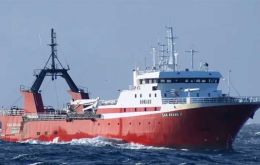
Argentina has launched a research cruise on Patagonian tooth fish (Dissostichus eleginoides) to collect more information on the reproduction physiology of the species. The fishing factory vessel San Arawa II left Ushuaia with a team of scientists from INIDEP, the Mar del Plata based Fisheries Research and Development Institute, and the cruise is expected to last some three weeks.
-
Monday, September 9th 2024 - 08:52 UTC
Croatian vessel halts traffic for 12 hours through Paraná Waterwa
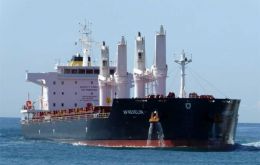
Trade sailing through the Paraná Waterway collapsed for 12 hours Saturday between San Nicolás and Ramallo when the Croatian-flagged bulk carrier AP Revelin ran aground, thus hindering traffic both ways as low water levels keep affecting business. In this scenario, several barges were advised not to set sail.
-
Monday, September 9th 2024 - 07:20 UTC
Daylight saving time evens Santiago de Chile with Argentina and Uruguay

Chile switched to the summer sunlight-saving time, starting at zero hours last Saturday in most parts of the country, including the Santiago Metropolitan Region, where the electricity supply has gone through severe problems lately.
-
Thursday, September 5th 2024 - 09:09 UTC
Santiago de Chile to expand fleet of electric buses

Chilean authorities are leading the region's transition towards environmentally friendly public transport networks by planning to replace some 214 diesel buses serving the Santiago Metropolitan area with electricity-powered ones in the short run, it was announced.
-
Thursday, September 5th 2024 - 08:04 UTC
Black rain forecast for southern Brazil and northern Uruguay
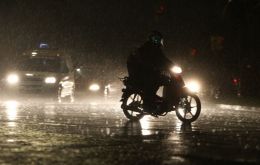
Brazilian Meteorological researchers Metsul have issued a black rain warning for the southern part of the region's largest country, which could also be affecting northern Uruguay Thursday -Cerro Largo, Rivera, and parts of Rocha- given a cold front clashing with a smoke plume from the large number of fires in the region, it was explained.
-
Thursday, September 5th 2024 - 08:01 UTC
Scientific research study on Avian Influenza Virus, HPAIV
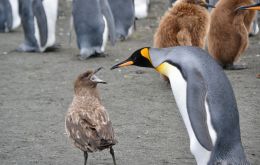
Nature Communications has published and made public an extensive report with full results on field sampling and diagnosis of the deadly Bird Flu virus, high pathogenicity avian influenza virus (HPAIV), detected in the Falkland Islands and South Georgia, which apparently is rapidly spreading to sea birds and mammals species in sub-Antarctica islands and the frozen continent.
-
Thursday, September 5th 2024 - 07:48 UTC
Antarctica project financed by UKRI to unlock life's secrets in extreme cold
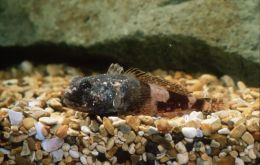
Cambridge researchers are set to explore the uncharted depths of life in the extreme cold, with findings that could reshape our understanding of biology and pave the way for future scientific breakthroughs.
-
Tuesday, September 3rd 2024 - 22:30 UTC
Downspout affects Paraguayan foreign trade freight rates
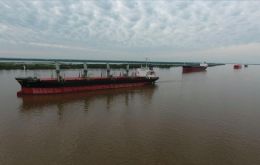
Paraguayan import/export operations, which are heavily dependent on barge transport through the Paraná and Paraguay Rivers, saw costs go up 29.2% interannually in July as lower water levels limited both navigation and the amount of cargo each vessel can carry. In the third week of August, the Paraguay River was one centimeter above its historical minimum.
-
Monday, September 2nd 2024 - 11:35 UTC
Mass gas emission cut proposed in Brazil by 2035

According to a study by the Climate Observatory network, Brazil needs to cut greenhouse gas emissions by 92% by 2035 if South America's largest country is to make a fair contribution to limiting global warming to 1.5 degrees Celsius (ºC), Agencia Brasil reported. This target is based on 2005 emissions of 2.4 billion net tons, reducing the annual limit to 200 million net tons, it was also explained.
-
Monday, September 2nd 2024 - 07:44 UTC
Drought in Brazil reaching unprecedented limits
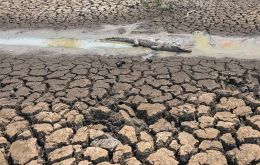
According to Brazil's National Center for the Monitoring of Natural Disasters (Cemaden), South America's largest country is facing the most severe drought in its recent history. The agency also noted that more than one third of the country was affected by “extreme drought.”
